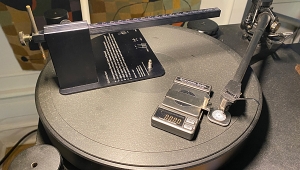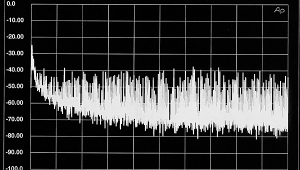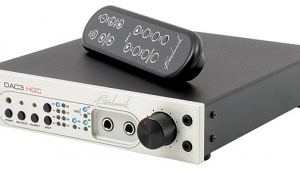| Columns Retired Columns & Blogs |
As Reviewers See It Page 10
Hammond: The question is: How much detail is desirable and how much is undesirable?
Greenberg: Whatever's there.
Balgalvis: Whatever's on the record.
Lipnick: You said it.
Greenberg: Why can't we just say that there is no one absolute job for a hi-fi system? Some people are searching for a neutral playback system that will accurately replicate the input signal; some people are looking for not so much neutrality but something that will make them feel good at the end of the day.
Hammond: Isn't this one of the basic problems with hi-fi reviewing? That each person comes to his listening with a slightly different goal that he desires to reach? That there is no universal sort of thing that will accomplish every goal for everybody all the time for every recording?..."Accurate" is a word that I think should almost never be used without specifically defining in what context you're going to be using it in that sentence. It may be tedious, it may be laborious, but it's the only way there's going to be clean thinking about it.
Balgalvis: I have the same problem; I try to avoid the word "accurate." I talk about the process of authentication. Does what you're listening to have a resemblance to the live event in an authentic way? In a way that's credible?
Olsher: I basically agree. When you throw out the word "accuracy," you'd better have a reference. When I calibrate a meter, I have to have a reference standard to which I compare that meter. What is that reference standard when it comes to audio? Is it accuracy in terms of reproducing the dynamic scale? Is it timbral accuracy? Is it flat energy or flat amplitude response? You have to pick different references for each attribute of the music. Personally, I value some things more than others. So it does become a personal statement.
Harley: For me the quality criterion is how easily the electronics are forgotten, and how much the music grabs your attention and makes you forget about the electronics.
Holt: That's certainly major, yeah.
Hammond: But somebody may not want to have the music grab his emotions because he's got to do some intellectualizing about that music.
Harley: Nooo!
Atkinson: Why is he listening to the music? If he doesn't want it to grab his attention.
Hammond: No no no! Without that kind of study there would be no understanding of music. You can't just unplug your head intellectually...and listen to the music on an animal level all the time.
Greenberg: Why not? [laughter]
Lemcoe: Show me how you can intellectualize about music which I listen to and often use in reference: Bogalusa Boogie, by Clifton Chenier.
Greenberg: Yes!
Lemcoe: If you don't shake your ass when you listen to that record, your system stinks!
- Log in or register to post comments




































